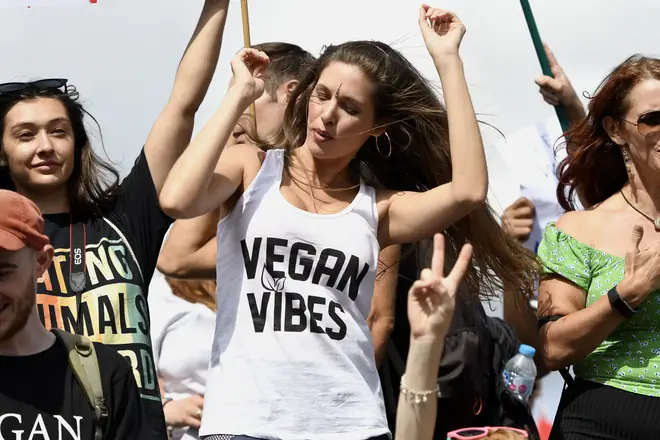
Nick Abbot 10pm - 1am
23 November 2020, 08:12

Vegans are more likely to suffer broken and fractured bones than those who eat meat and fish, according to new research.
The study also suggested that the fractures vegans are most susceptible to in comparison to meat-eaters are hip-breaks, with vegans 2.3 times more likely to suffer from them.
Nearly 55,000 people took part in the EPIC-Oxford study, of which roughly 2,000 were vegans.
It found that those not eating meat or fish products, such as beef, chicken or pork, were 43 per cent more likely to suffer any type of broken bone.
The research followed people for 18 years on average and revealed a total 3,941 fractures in that time.
It has been published in BMC Medicine and lead author Dr Tammy Tong, a nutritional epidemiologist at the Nuffield Department of Population Health, said: "We found that vegans had a higher risk of total fractures which resulted in close to 20 more cases per 1,000 people over a 10-year period compared to people who ate meat."
Read more: Vegans need own shelf in office fridge, guidance claims
Read more: Almost a quarter of new food products are vegan

"It's not a war to eat more vegan meals"
While the data showed a higher risk of hip fractures in vegans, vegetarians and pescatarians than meat-eaters, vegans also had a higher risk of leg breaks and fractures at other main sites, including the arm, wrist, ribs and clavicle.
However, data on whether the fractures were caused by poor bone health or accidents was not available.
Dr Tong added: "Well-balanced and predominantly plant-based diets can result in improved nutrient levels and have been linked to lower risks of diseases including heart disease and diabetes.
"Individuals should take into account the benefits and risks of their diet, and ensure that they have adequate levels of calcium and protein and also maintain a healthy BMI, that is, neither under nor overweight."
There are roughly 600,000 vegans in the UK - which equates to 1.2 per cent of the population - according to the Vegan Society's 2019 figures.